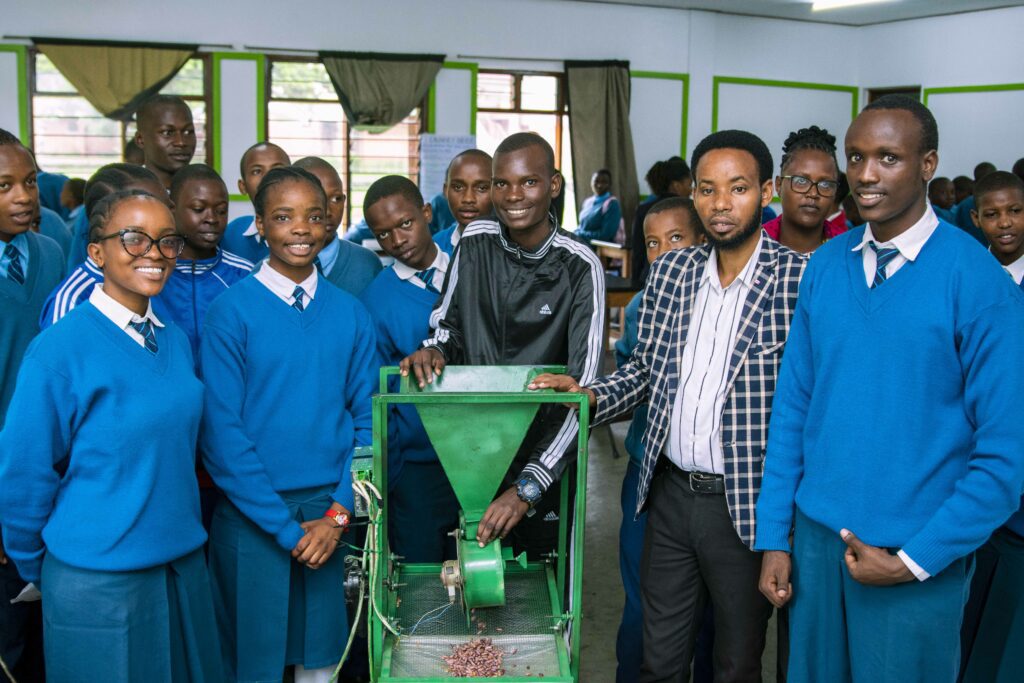
It’s a chilly April morning at St Jude’s Smith Campus. There are no classes today. Instead, the campus transformed into a vibrant hub of innovation, the halls filled with tables displaying a huge variety of incredible work from the students. Over in the school’s dining hall, visitors, staff, students, guests, and even a local news station gather for the official opening of St Jude’s 13th Annual Science Day.
“Today is a special day that brings together our entire community to celebrate innovation and creativity,” says Mr Tsingay, St Jude’s Secondary School Headmaster in his opening speech. “Over 50% of our secondary school students are pursuing science subjects. Today, we will see first-hand how they turn their ideas into solutions,” he adds.
Following the opening ceremony, Mr Tsingay invited everyone to explore the diverse projects and engage with the innovators. Projects included generating electricity out of potatoes, an automatic earthquake sensor, a solar-powered mower, a vacuum cleaner, and even a clever mouse trap from St Jude’s primary school students.
“What do you do with your bar of soap when it gets too small?” asks Marko, pitching his soap recycling prototype. “The most common solution is to simply throw it away. But we have developed a soap recycling machine that could save you on resources and money while conserving the environment,” he adds.
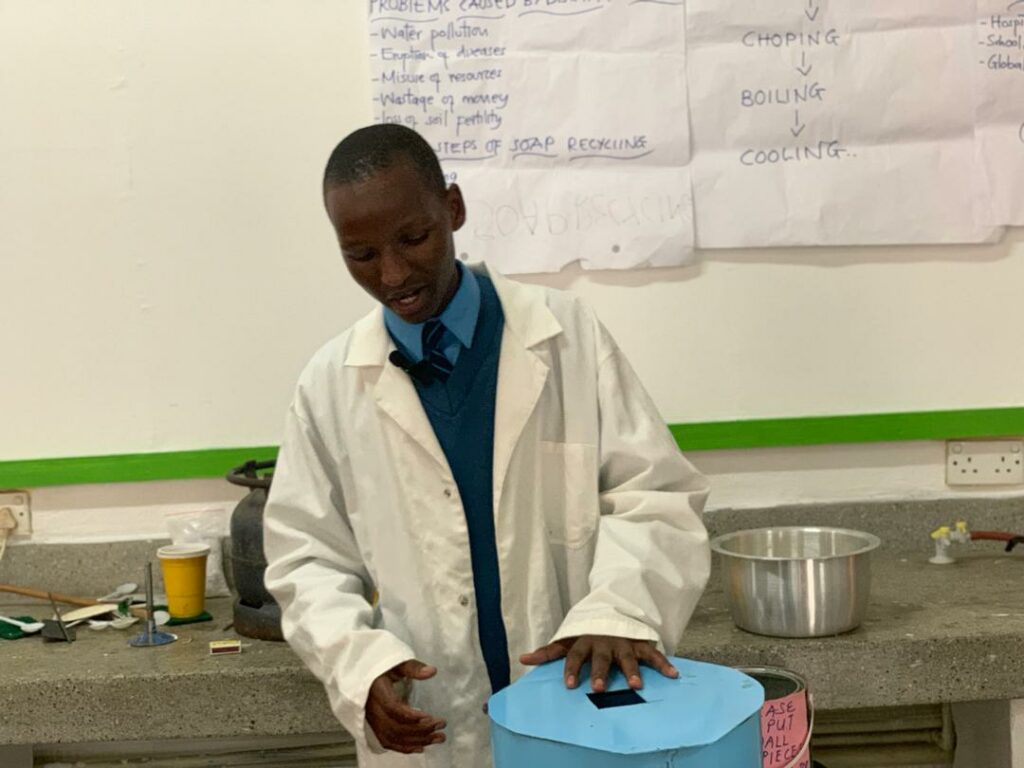
Marko then proceeds to demonstrate how his prototype works, which involves grinding the soap leftovers, followed by boiling, chemical disinfection, and eventually cooling the final product into a ‘new’ bar of soap.
Since the first Science Day 13 years ago, students have set the bar higher and higher, coming up with innovative and creative solutions to challenges that they or their communities encounter in real life. At this year’s Science Day, students have capitalised on the rise of technology, particularly Artificial Intelligence (AI) to develop customised and highly efficient prototypes.
One such project is the “Bean Sorting Machine” designed to reduce workload for farmers by automating the painstaking process of sorting and cleaning crops.
“One of the biggest challenges for farmers is maintaining the quality of their products through an efficient and consistent sorting process,” says Veronica, one of the innovators of the project. To address the challenge, Veronica and her team designed and built a machine that could efficiently sort up to 150 kilograms in an hour.
“Potential updates to our machine include incorporating AI and laser technology to improve its efficiency in removing impurities,” explains Veronica.
Another highlight of the day was the creative application of art in conserving the environment through the recycling and reusing of waste products. Students turned discarded plastics, worn-out clothes, and even wood scraps into decorative items in a beautiful “trash-to-treasure” display.
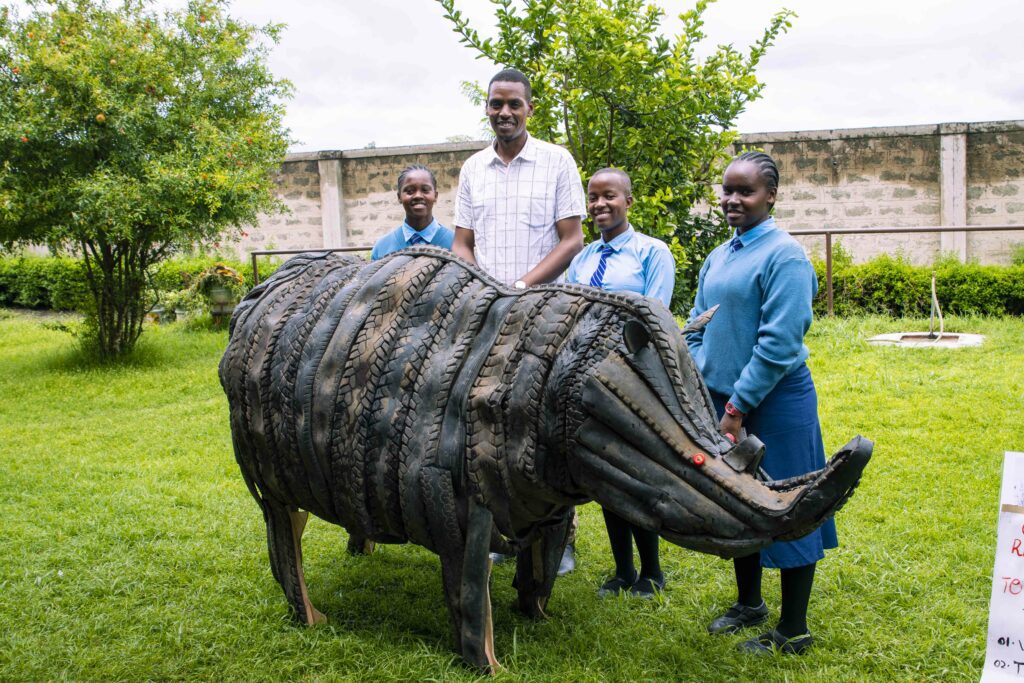
The Science Day is a platform from which our students demonstrate their keen understanding of science principles to address problems they see around them, and we have seen outstanding ideas emerge from this school event over the years. This year’s Science Day was partly sponsored by Edgar, an award-winning St Jude alum and founder of a start-up that recycles plastic waste into useful construction materials. Edgar showcased his prototype of plastic bricks at a St Jude’s Science Day as a student and continued to refine his idea to eventually launch his own company.
“When we started the Science Day competition 13 years ago, most projects were just made out of wood and glass” reflects Mr Mcharo, St Jude’s Academic Senior Manager. “Today, our students are demonstrating working models and turning their ideas to businesses. It’s a testament to the power of innovation and the opportunities brought alive by St Jude’s holistic approach to education,” he adds proudly.
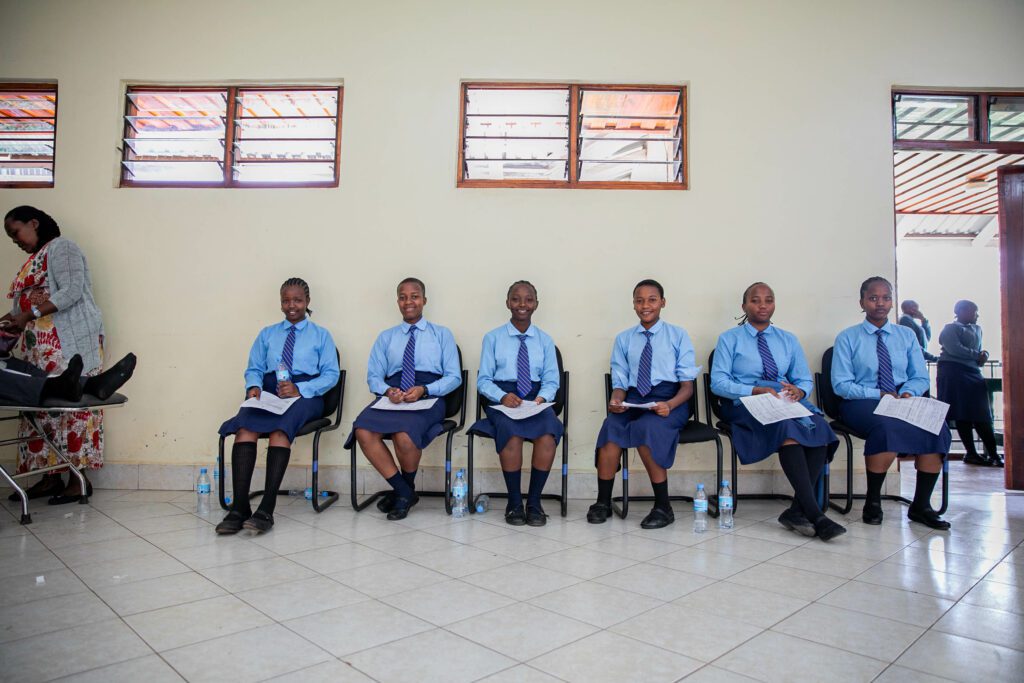
One of the most enduring cultures at St Jude’s is the spirit of compassion and helping those in need. Throughout the year, students and staff support the community in various ways.
“Every other weekend, our students are out volunteering at an orphanage, cleaning the marketplace, or sharing their skills and knowledge with students from neighbouring schools,” says Focus, a staff and mentor of Interact Club at the school.
This year, St Jude’s launched another impactful initiative to support the community, particularly patients in need of blood transfusion. In March, the school introduced a bi-annual blood donation drive for eligible staff and students to voluntarily participate.
“We saw the need to step in and help local hospitals around our communities replenish their blood banks,” says Irene, who helped organise a recent blood drive at St Jude’s. “From medical emergencies and accidents, to supporting mothers during childbirths, our hospitals could always use the extra blood units,” she adds.
The first round saw 81 volunteers, including students at St Jude’s Girls’ Secondary School and staff participate in the blood drive. The turnout was so good that it earned St Jude’s special recognition from Arusha’s largest referral hospital as the biggest blood donation drive by a single institution in its history.
“It was a pleasant surprise,” says Irene excitedly. “We only had a few weeks to organise the drive and had initially estimated the blood drive to only take a few hours. In the end, it lasted the entire day! It was wonderful to see the St Jude’s community coming together once again in support of such an impactful program,” she adds.
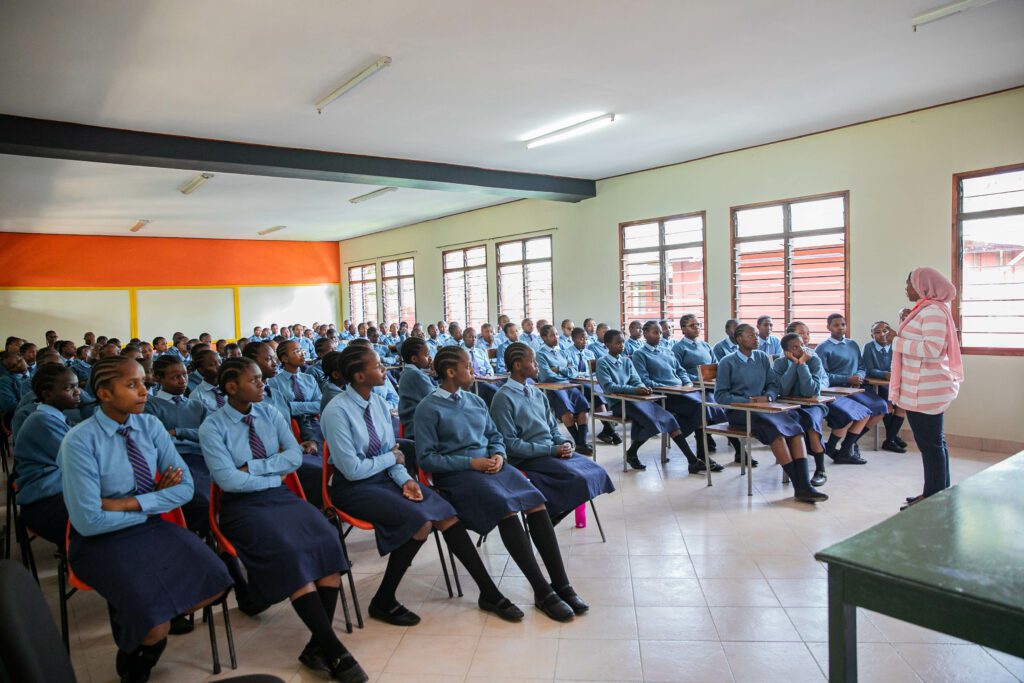
The blood donation drive was a collaborative effort between St Jude's welfare and academic teams, with support from Arusha's biggest referral hospital.
"We wanted to ensure that the drive was organised efficiently," says Irene. “The hospital helped organise an information session for our students and staff ahead of the drive and the school arranged a special lunch for everyone who donated their blood,” she adds.
Fatuma, one of the talented hosts of our monthly podcast, was one of the 63 students at St Jude’s Girls’ Secondary School who participated in the blood drive. Beyond the podcast, she is an incredible athlete aspiring to become a P.E. teacher and understands the importance of donating blood in saving lives.
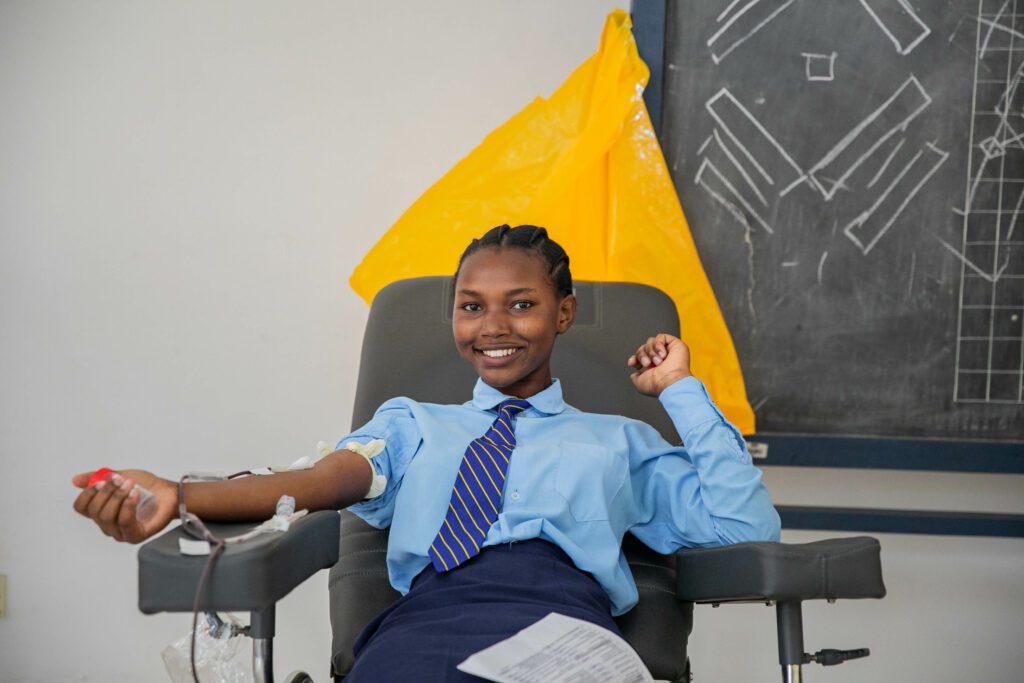
“I first learned from my sister, who is a nurse, that blood can be used to help people, particularly mothers during childbirth,” says Fatuma. “So when this opportunity arrived, I immediately volunteered,” she adds excitedly.
It’s also quite fitting that the record-setting blood drive happened at St Jude’s Girls’ Secondary School during a month dedicated to celebrating women. Soon, St Jude’s will conduct another blood drive at Smith Campus and continue supporting local hospitals with extra blood. It’s part of a new tradition at St Jude’s where students and staff unite to save lives.
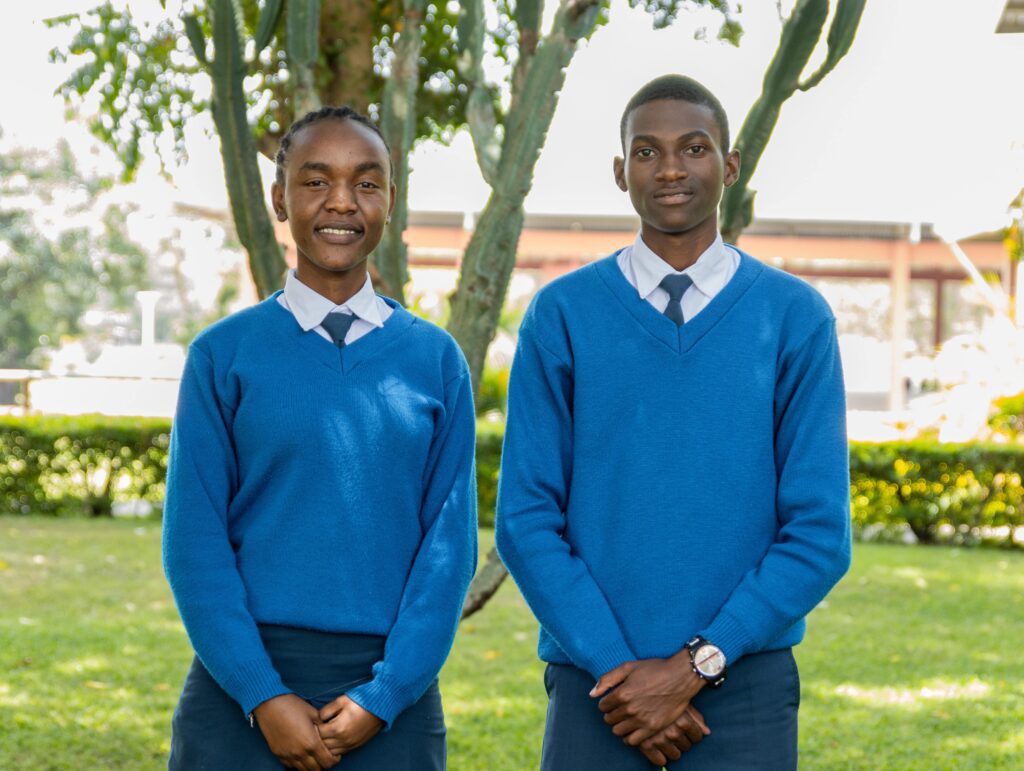
One of the most coveted opportunities at St Jude’s is a chance to serve in the school government. Every year, students across St Jude’s three campuses contest for a spot in one of the many leadership roles within the student government.
“You need to be influential to stand a chance to win,” says Long'ida, the newly elected Student Government Chairperson at St Jude’s Secondary School. “This means developing a relatable personal brand among your schoolmates and having strong interpersonal and people skills to earn their trust,” he adds.
Long’ida joined St Jude’s 12 years ago as a Standard 1 student. He had never imagined that he would rise to become the chairperson of the student government one day. In spite of his calm and composed personality, he demonstrated strong personal values and leadership skills that gradually caught the attention of his peers and teachers.
“I was appointed as a Table Leader a few years ago,” recalls Long’ida. “At the outset, it looked like a fairly easy task but it’s amazing how simple responsibilities shape you as a person. Through this role, I learned invaluable lessons of patience, empathy, management, and even conflict resolution,” he adds.
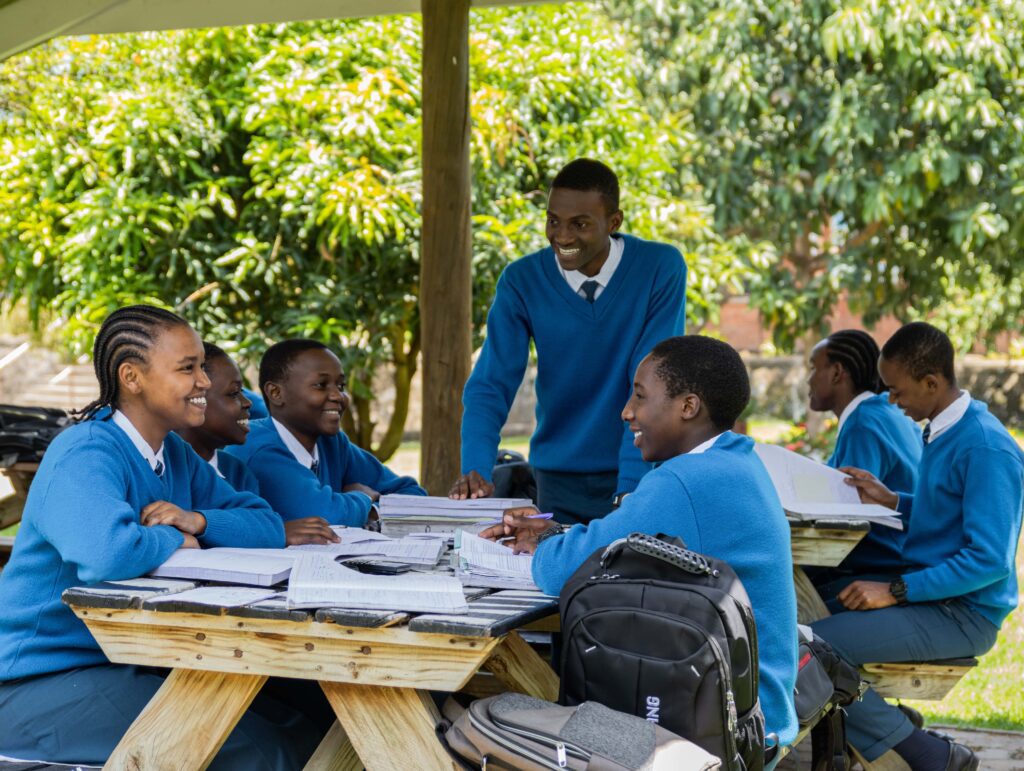
This experience opened new opportunities for him within the school. He has since served as a Level Coordinator, a Dormitory Leader, and ultimately the Student Government Chairperson, the highest position in the student government.
Along with Long’ida is Vivian, St Jude’s Student Vice Government Chairperson. Unlike Long’ida, Vivian discovered her flair for leadership at an early stage and has held various positions since joining St Jude’s 11 years ago.
“I think being a leader makes you understand yourself better,” reflects Vivian. “My perspective and attitude have improved over the years of my leadership experience. For instance, I no longer see problems as challenges anymore but opportunities for growth,” says Vivian.
In addition to the personal growth she gained through leadership, Vivian has also benefited from St Jude’s extensive resources and support. Regular training sessions and access to a wealth of resources, such as the school library and computer rooms, contribute significantly to students' development as leaders.
In spite of her responsibilities, Vivian is charming and outgoing. She enjoys playing netball and decorating. In her free time, she practises poetry and reads inspirational books at the school library.
“I approach life one step at a time,” says Vivian. “My dream is to use all the experience and skills that I have to help my country and community,” she adds.
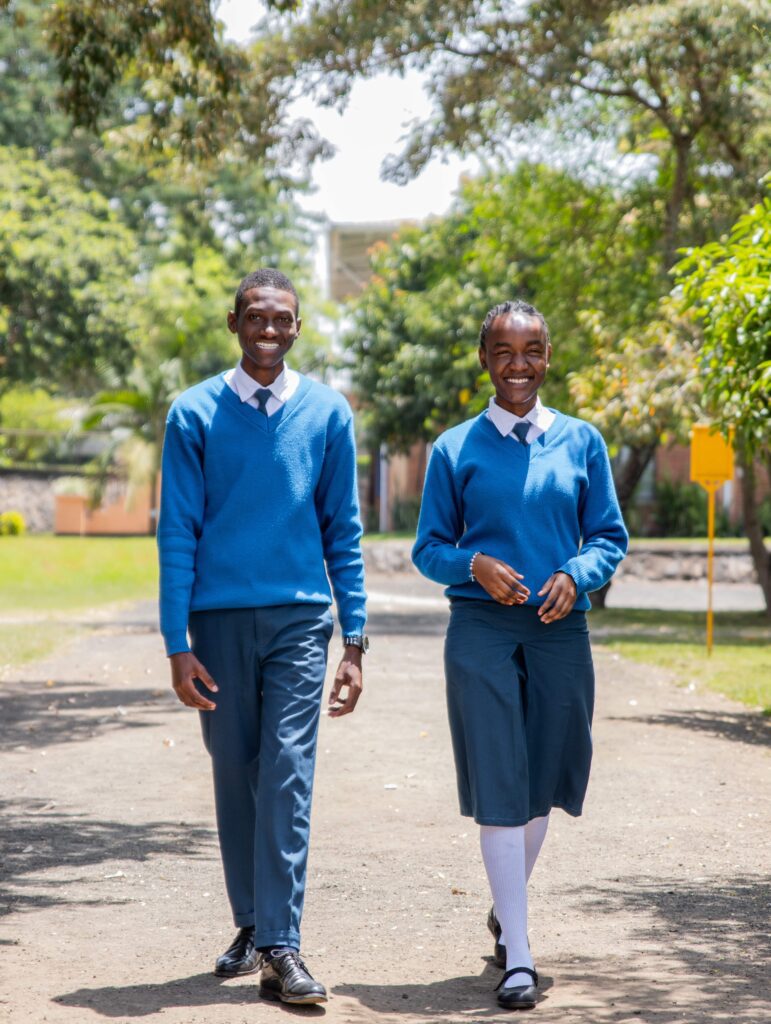
At St Jude’s, the Student Government enables aspiring leaders to develop their skills and personal attributes. It instils the spirit of solidarity and cooperation on campus whilst nurturing the future leaders of Tanzania.
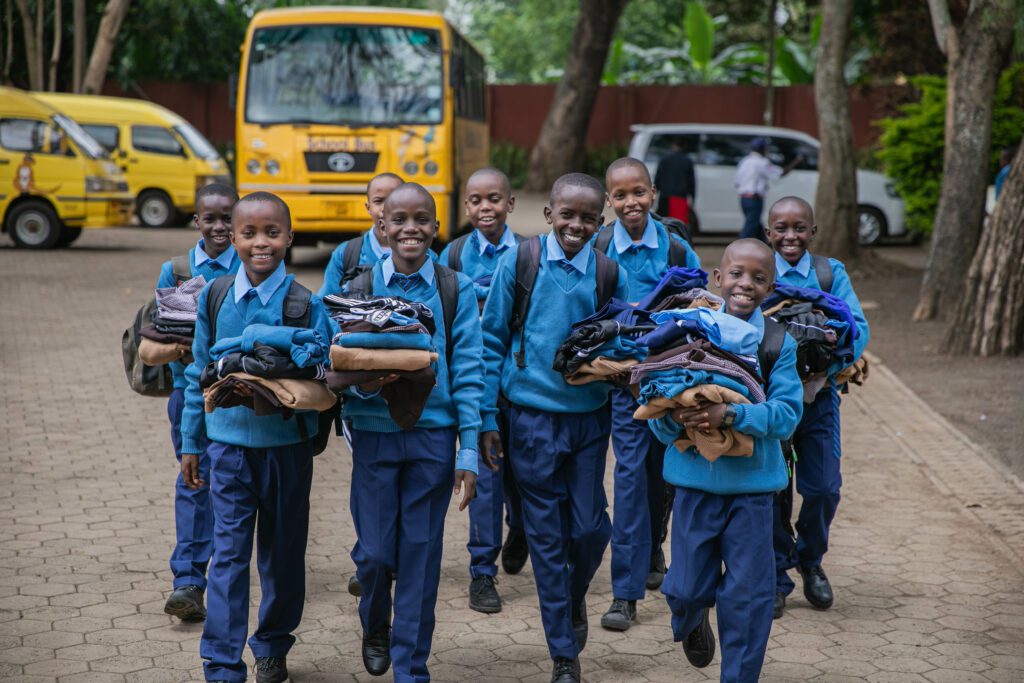
At the beginning of every year, St Jude’s campuses are filled with fresh, new faces of students joining the school for the first time. This includes Standard 1 and 2 students in primary, who are at the start of their academic journey and Form 1 students joining St Jude’s at the secondary school level. This is a proud moment for everyone at the school as it represents the culmination of an extensive scholarship application process.
There are three key stages of school in Tanzania; seven years of primary school from Standard 1 to 7, then four years of secondary school from Form 1 to 4 in Ordinary Level (O Level) studies, and finally the final two years of secondary school, Form 5 and 6 in Advanced Level (A Level) studies.
“My parents received a letter inviting me to apply for a scholarship at St Jude’s,” recalls Newton, one of the new Form 1 students at St Jude’s Secondary School.
“I was one of five students from my school who received the invitation, so I was determined to give it my best shot,” he adds.
Over the next few weeks, Newton and hundreds of other applicants underwent a series of examinations and poverty assessments. Eventually, 144 applicants were selected to join St Jude’s.
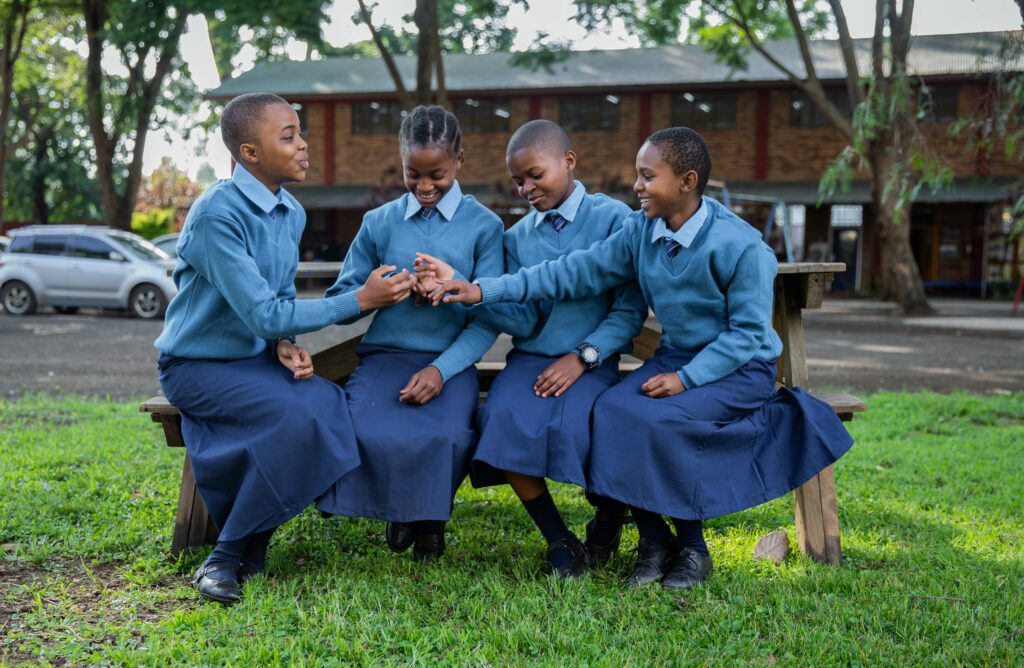
“Our scholarship application process is very rigorous and competitive,” says Ms Herieth, a St Jude’s alum of 10 years currently working full-time as a teacher.
Speaking at the Inside St Jude’s Podcast, Herieth explains, “Every year we send out invitation letters to thousands of high-performing students in government schools across three regions of northern Tanzania.”
“We take great care to ensure that every applicant has a fair chance of getting a scholarship at St Jude’s. So, it is a proud moment for everyone when the new students finally report to school,” she adds.
St Jude’s has a comprehensive orientation program to ensure a smooth transition for new students at the school. It involves a school tour, personalised English lessons, and a strong buddy system.
These 144 new students join our existing students coming up from the primary school.
“Every new student at school is paired with an older brother or sister to give them an inclusive experience of our community,” says Ms Agnesi, Form 1 Level Coordinator at St Jude’s Secondary School.
“We also have homeroom teachers, boarding parents, and level coordinators to help them settle in and adapt in the best way possible,” she adds.
During the orientation period, new students would visit the school library, and computer labs, and try out different sports in the field. This is usually an eye-opening experience and a great way to develop new hobbies.
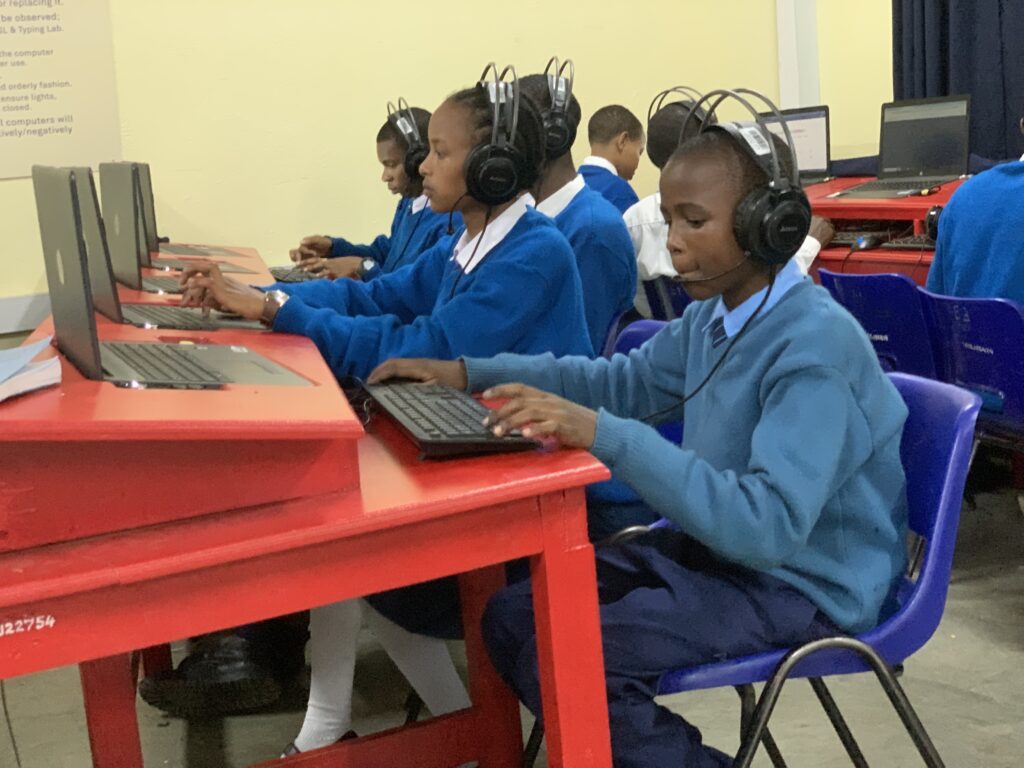
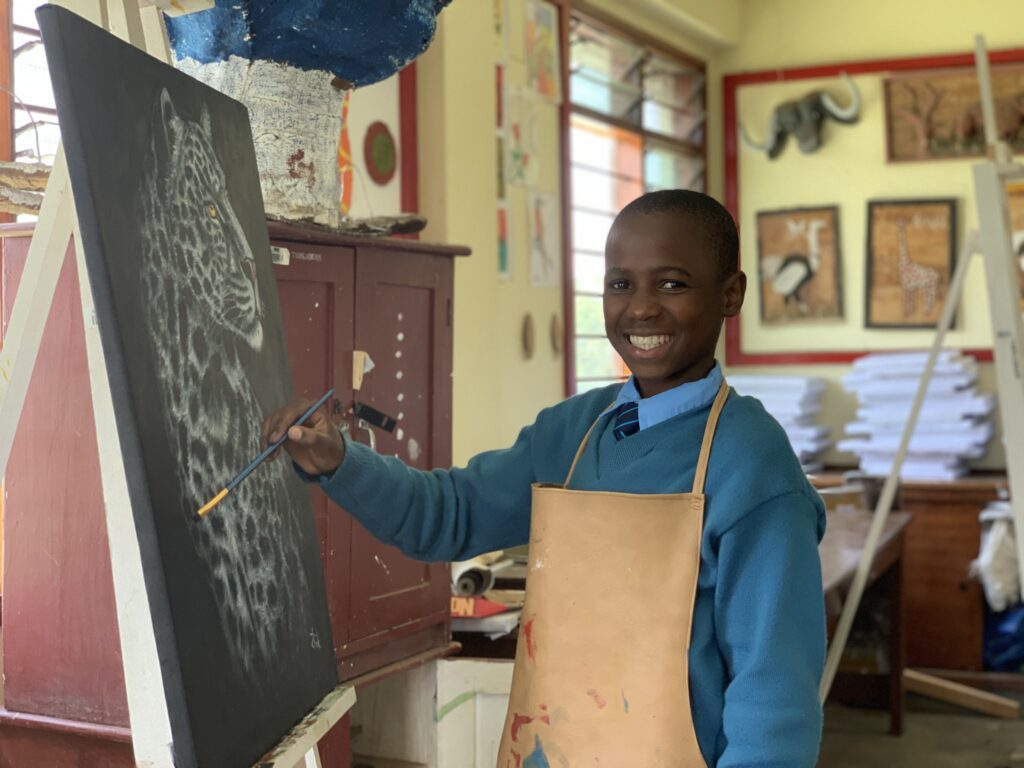
“I really love the art and computer rooms,” says Newton, who is quickly adapting to life at St Jude’s. One of his best experiences is learning English with St Jude’s English as a Second Language (ESL) program. He has also discovered his love for basketball and volleyball over in the sports fields.
“I have only ever played football,” says Newton. “But trying out different sports has made me realise that I’m also good at throwing the ball – not just kicking it,” he adds with a smile.
Newton is one of 235 students currently starting their secondary school education at St Jude’s. This is in addition to 45 new students joining St Jude’s in Standard 1 and 2 at primary school.
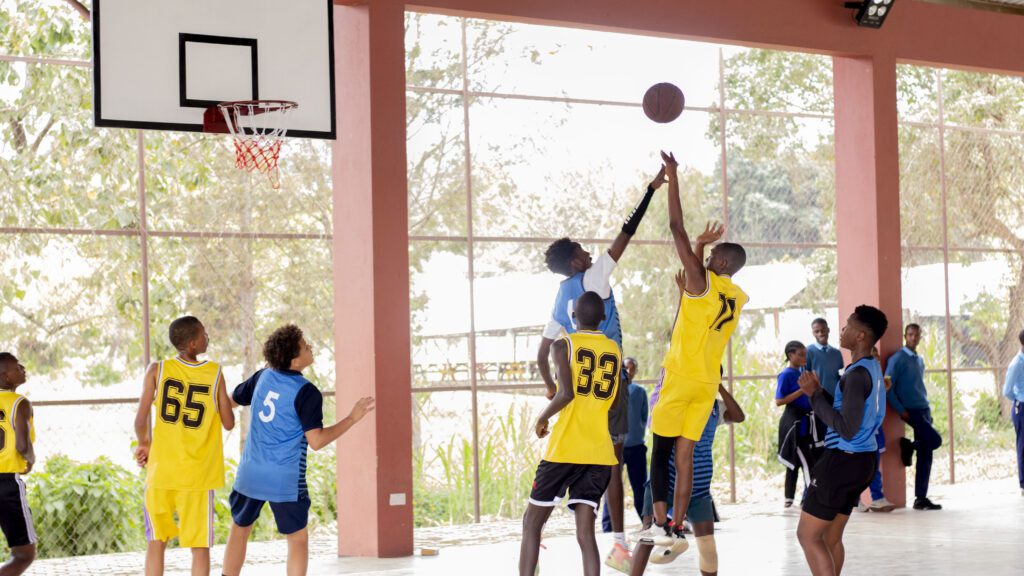
The School of St Jude hosted yet another sports tournament, inviting other school members of the Northern Tanzania Schools Athletic Association (NTSAA) to share in the vibrant cultural and social opportunities of our community.
Having participated in NTSAA tournaments for many years, St Jude's has also been a host of the tournament with the under 15 Basketball and under 17 Football tournaments in December last year, followed by the under 13 Basketball and under 11 Football tournaments earlier this year.
“This past weekend marked another milestone as we hosted under 13 and under 19 football, along with under 16 basketball league matches,” explains Jenerali, the Assistant Team Lead in St Jude’s sports department.
Speaking after the tournament, Jenerali is passionate about these larger competitions, giving students an amazing opportunity to test their skills against other schools.
“All nine associated schools participated, resulting in over 405 students across three age categories competing," he adds.
As part of the holistic education approach at St Jude’s, all students take sports to develop their fitness and support their mental health.
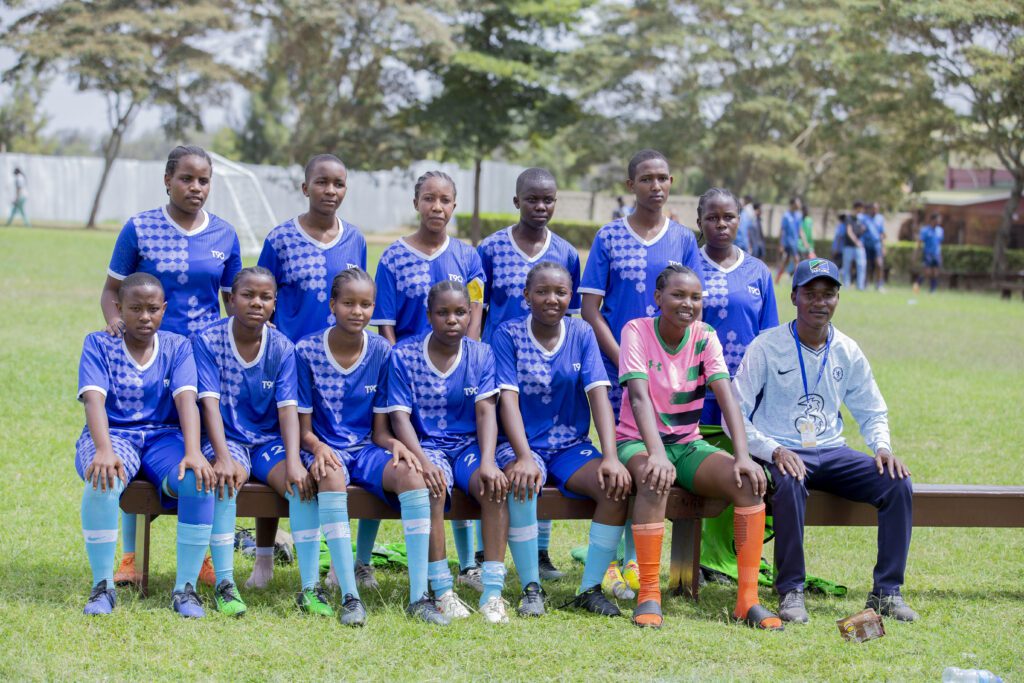
Among the students who participated in the tournament is Ivon, a Form 3 student who is part of the girls’ football team. Ivon joined St Jude's in Standard 1, and in Form 1, she found her passion for football. She started training with the support of one of St Jude’s wonderful coaches and working on her skills to eventually join the school’s team in Form 2.
“I am happy to be a part of this tournament with other schools and I'm also happy with the outcome,” says Ivon who shined during the NTSAA tournament.
“The preparation for this competition was intense, especially because we had just came back from the midterm holidays and hadn’t practised for a while. Thanks to our coach, we trained on weekdays and prepared for this match,” she adds.
St Jude’s Girls’ team played against tough opposition from other schools, but by the afternoon emerged as proud winners!
“Despite the fact that the other teams had good defence players, we utilised our strengths in passing the ball and scoring to win the match. We realised quickly that we were the better side when it came to teamwork which helped us get the results,” shares Ivon.
“The biggest lesson we took from this tournament is the confidence and passion that the other teams demonstrated throughout. We were afraid that would reflect in our performance but thankfully that was not the case and we won again,” she adds happily.
Ivon and her fellow students' performance was praised by Ms Emiliana, sports teacher at St Jude's Girls' Secondary School. “I am proud of our students' performances. Both our under 19 girls and our under 13 boys' football team were outstanding, maintaining an undefeated record,” she says proudly.
“The event was incredible with over 400 students participating. It’s the largest student sports event hosted since the beginning of our sports program,” she adds.
Although St Jude's performed exceptionally at this year’s competition, Ms Emiliana is even more optimistic about future competitions.
“Looking ahead, we anticipate even greater success; with league matches attracting more students and coaches, we expect to see an increase in the number of spectators in the future,” she says. “This means more family and friends from participating schools will come to watch, creating an even more vibrant and supportive atmosphere for our student-athletes,” she adds.
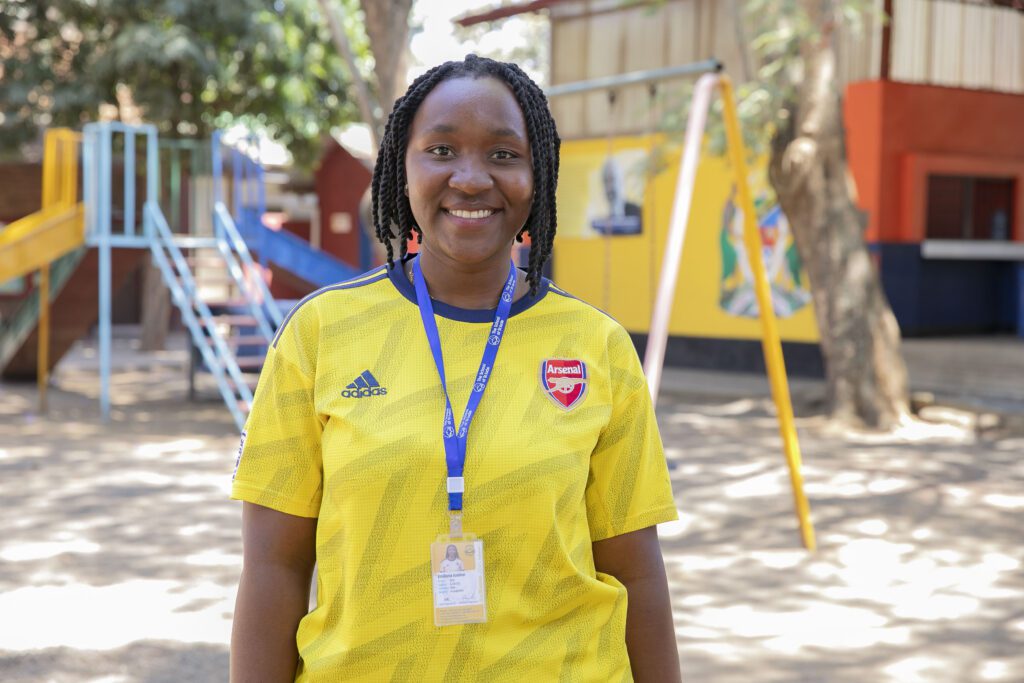
Regular sports events, both regional and national competitions are just one of the ways in which the school engages students’ passions and talents. The extensive sports program not only enhances the school’s performance in competition but empowers students to develop valuable life skills.
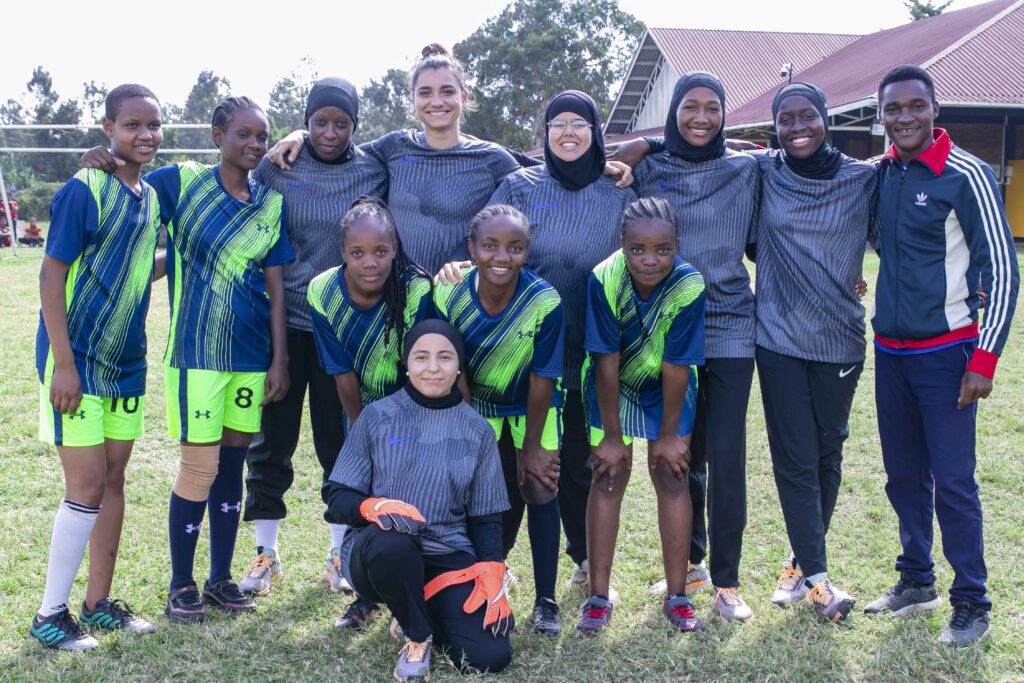
Joining The School of St Jude presents a significant academic transformation for students. The spacious classrooms, well-stocked libraries, and computer learning programs unlock new ways for students to engage in their academic interests. For Heavenlight, however, one of her favourite places at school is the football playground.
“I love the computer rooms and the libraries,” says Heavenlight. “But on the football field is where my heart jumps with excitement,” she admits.
Heavenlight joined St Jude’s Girls’ Secondary School after completing her primary education at a government school. In the two years she has been at St Jude’s, Heavenlight has greatly developed her talent in sports to become one of the leading footballers at the girls' school. She is a regular starter on the girls’ football team and routinely represents St Jude’s in interschool competitions around Arusha.
“I credit my improved footballing abilities to St Jude’s,” reflects Heavenlight. “Although I have always loved playing football, the supportive environment and robust sports program at St Jude's have greatly complimented my talents,” she adds.
Football is predominantly regarded as a boys’ sport in Tanzania, a custom that has made it significantly harder for aspiring girls to pursue the sport. This situation is exacerbated by students in government schools, which generally have limited options for sports to accommodate both girls and boys.
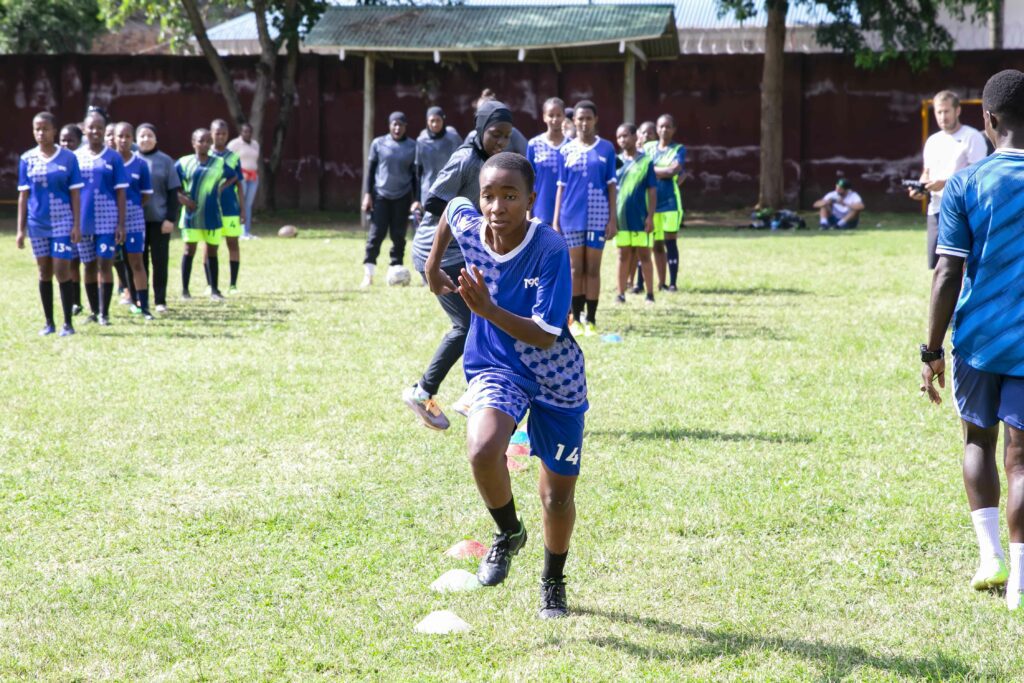
“If I ever wanted to play football, then I had to train with the boys,” Heavenlight shares of her experiences before joining St Jude’s. “We didn’t have a dedicated sports teacher, we hardly ever played any interschool games, and there was only one football for the entire school. Furthermore, we didn’t have a girls' football team, so I never got the chance to play in competitive tournaments,'' she adds.
Since joining St Jude’s, however, Heavenlight feels as though she has reinvented herself once again. Her new school has a dedicated sports program, well-maintained infrastructure, and sufficient sports gear for various sports.
“I immediately joined the girls’ football team and quickly established myself as an important part of the team,” she says happily. “In addition to regular practices, we get professional coaching and frequently participate in interschool or interclass tournaments and friendly games which help us maintain our enthusiasm and competence,” she adds.
A dedicated sports program is an essential part of St Jude’s approach to holistic education. This ensures that students not only excel academically but also develop their natural talents and skills to become well-rounded individuals. In recent years, the school has complemented its academic achievements with extraordinary performances in national and international sports competitions.
“The sports program is a massive success because of all the support we get across the board; from students to staff, external stakeholders, and the government as well,” says Jenerali, St Jude’s Sports Department Assistant Team Lead. “As a result, our comprehensive sports program is quickly garnering attention around the country and is opening the school to more opportunities within and beyond Tanzania,” he adds.
One such opportunity came in the form of a friendly match between St Jude’s and Les Hijabeuses, a women's football team from France. Having learned of St Jude’s excellent record and promotion in women's sports, the team reached out for a friendly match during their recent tour of Tanzania.
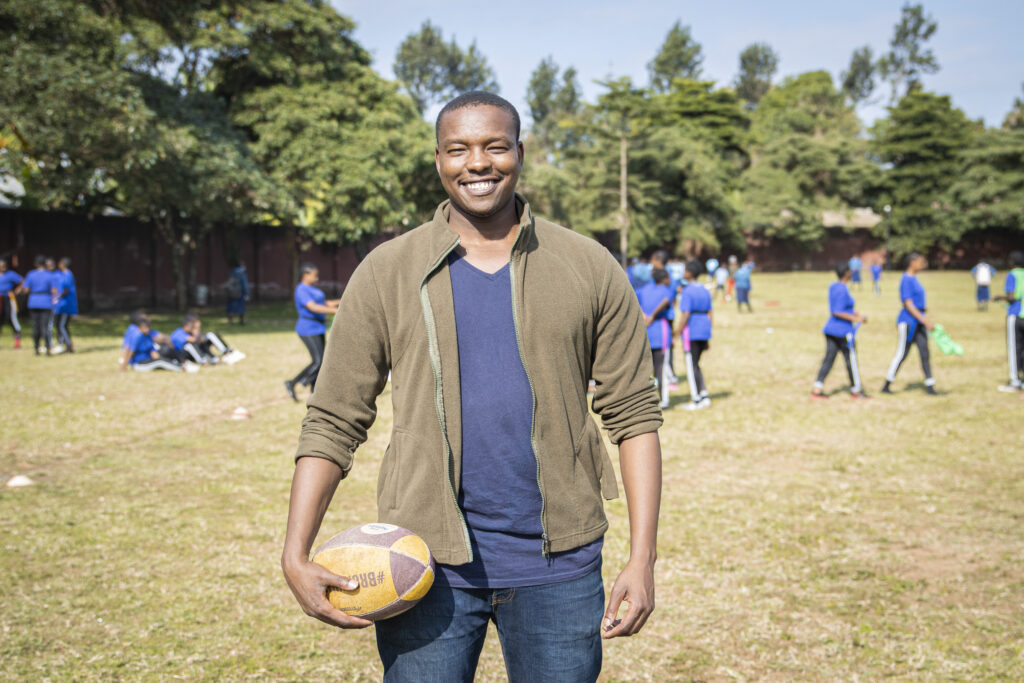
“It was good exposure for our students because it was the first time they played against a team from Europe,” says Jenerali. “In the end, everyone was happy and enjoyed themselves... and yeah, we came out on top,” he added with a smile.
The holistic approach to education at St Jude’s continues to unlock a wealth of talents and capabilities for students helping them fulfil their academic potential and develop leadership qualities to lift their communities out of poverty.